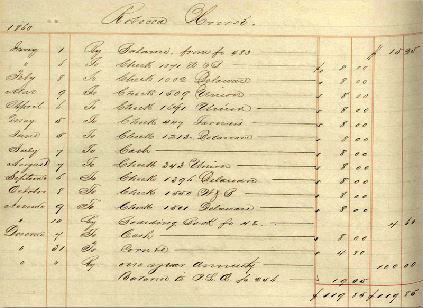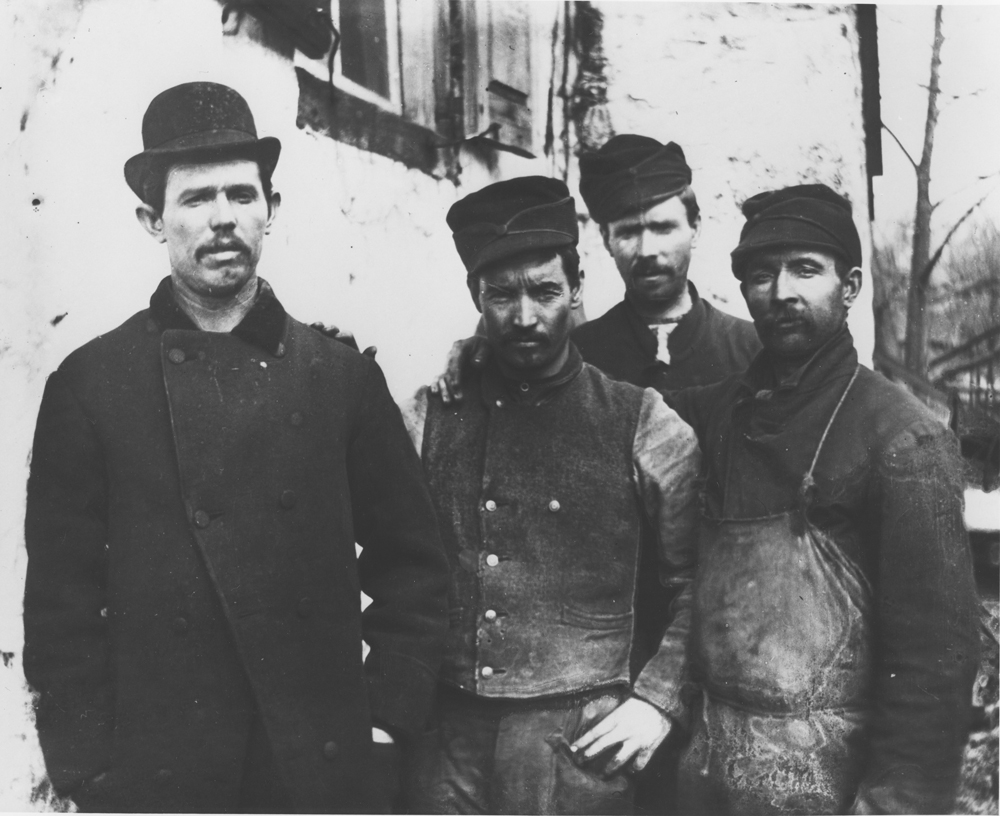The DuPont Company maintained pension and estate accounts for the widows and heirs of employees who died in explosions.
By 1860, the DuPont Company had a growing list of widows they supported and estates that they administered for deceased yard workers. At this time, twenty-three women held pension accounts. DuPont allowed widows an annuity of $100 per year, payable for life or until they remarried. Many widows remained in the community after their husbands' deaths. Some ran boarding houses or glued labels on powder kegs to supplement their pensions.
Estate accounts consisted of monies that remained in an employee's account when they died. DuPont paid interest to these accounts and allowed authorized relatives of the deceased to make withdrawals.
Fourteen names appeared on the estates list in 1860 with $5,324 credited to the accounts.

This is an entry from the 1859-1860 petit ledger for Rebecca Hurst. Her husband, Edward Hurst, a foreman in the powder yards, died as a result of an explosion in 1857.
An account of the 1857 explosion, written many years later, wrote this of Hurst: "He was terrible burned and died that night. Nevertheless he walked home and told his wife that he was not badly hurt."
In 1860, the widow Hurst received her $100 annuity from DuPont. During the year, she withdrew $8 a month. In November, she was credited $4.60 for taking in a boarder. At the end of the year, a total of $19.05 remained in her account, which included previous year's savings.
 WORKERS
WORKERS
